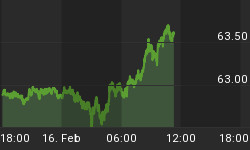Washington is reportedly considering a zero-payroll tax rate for employers and employees that would last through the rest of this year (or even longer) in order to counteract the impact from the widening coronavirus outbreak.
Media reported that during a closed-door lunch meeting with Republican lawmakers on Tuesday, Trump laid out the idea to cut payroll taxes to provide economic relief to workers and companies impacted by the coronavirus.
Addressing the media following day, National Economic Council Director Larry Kudlow was unable to provide a specific timeline for the plan, but called it "a very bold move by a bold president”, which will result in a big payoff. “Let us put the proposal out in concrete details and flesh that out and we’ll have much better answers,” media quoted him as saying.
The package would apparently include measures to ensure workers are paid for taking sick leave as well as aid for small and medium-sized businesses through the use of executive orders.
Payroll taxes, which are used to fund Social Security, Medicare and other government programs, are paid by employers and employees. For Social Security, employee wages are subject to a 6.2% tax up to $137,700. Workers pay a Medicare tax of 1.45%. Employers are pitching in the same.
According to the center-right think tank Tax Foundation, the proposed suspension of payroll taxes through the end of this year would amount to approximately $950 billion, some 25% of all federal government revenue for the year.
Previously, Trump had considered reducing payroll taxes last August in order to head off an economic slowdown; however, he eventually turned away from the idea because it failed to garner the necessary political support.
So, does it have support now? That’s not clear, at all.
Both Democrats and even some Republicans are skeptical about the benefits it would bring, saying it wouldn’t help the unemployed and wouldn’t really offer much relief to workers.
Who would benefit? Mostly, the middle class, by some accounts.
The middle class would benefit the most from a payroll tax cut, while those who have hourly wages or are unemployed wouldn't gain anything, according to Garrett Watson of the Tax Foundation.
Those in the top 20% of earnings wouldn't benefit much, either, because payroll taxes are regressive.
Related: Space Robots Could Help Colonize Mars
Under the proposed timeline, Trump would ensure that the tax is suspended throughout his re-election campaign. He has made the growing economy, record stock market numbers and low unemployment the focal points of his re-election bid.
Last June, Trump’s 2020 campaign cry was this: The stock market would crash if he wasn’t elected.
But then the Dow plunged 2,000 points on Monday in its worst day since the 2008 financial crisis. After Trump announced some economic initiatives, the Dow bounced back--a bit.
The White House is also considering federal assistance for the shale industry and other suffering industries, including airlines and cruise operators, but details are lacking and for now, it’s all lip service.
Trump is not the first president to speak of a payroll tax relief during tough times.
President Barack Obama cut payroll taxes by 2% in 2011, getting some $1,000 extra to every family for that year. In 2008, George W. Bush launched a stimulus plan in which checks were sent to taxpayers.
However, experts are warning that neither achieved any real, positive long-term economic results. It’s a bandaid on what is emerging as a much larger problem.
By Tom Kool for Safehaven.com
More Top Reads From Safehaven.com:

















